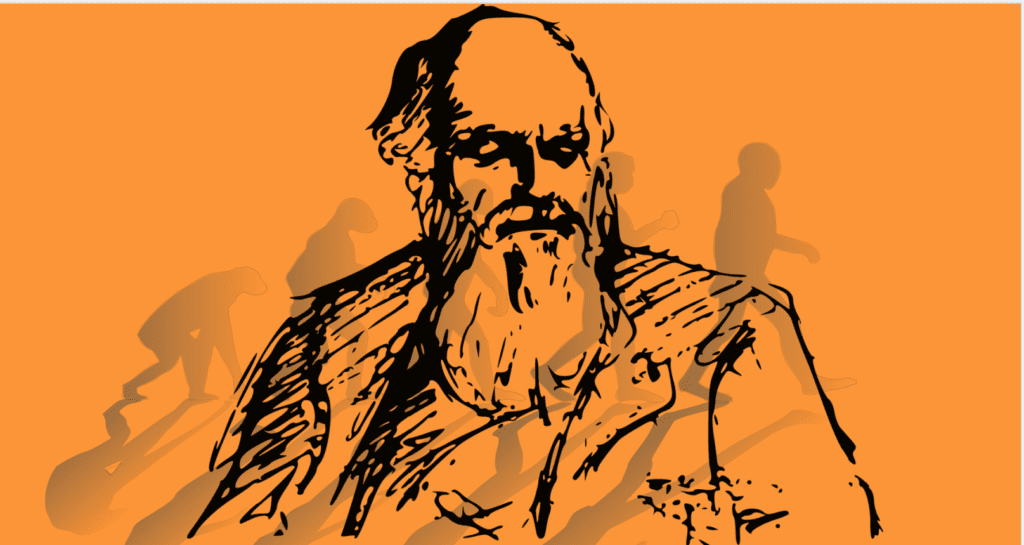
At the suggestion of a friend, I recently watched Fantastic Fungi. Normally, a movie about mycelium and mushrooms wouldn’t be my top pick for date night, but both my husband and I loved the film. Beyond being exquisite, the movie felt life-changing.
The idea that our world has a living, renewable resource that has been in existence for a billion years blows my mind. Especially as I learned that this resource has the capacity to feed us, restore damaged environments, and improve our minds.
If you want proof that we live in an interconnected world, go no further than fungi. (Trees are good proof of that as well.) Nature designed an underground Internet millions of years ago, which has survived without trolls, clickbait, or hate-feeds.
I left the movie in awe of the intelligence within nature, convinced more than ever that our planetary survival has more to do with collaboration than competition.

Survival of the fittest
But what about “survival of the fittest,” that concept from Darwin I was taught in school? Doesn’t evolution depend on the advancement of the strongest/fittest/most powerful members of a species? The concept “survival of the fittest” wasn’t limited just to flora and fauna. It translated into social settings as a justification for competition and top-down policies that privileged a few powerful people.
In the leadership literature, overtones of these ideas linger, focusing on individual excellence in a competitive world.
So how can we reconcile Darwin’s idea of “survival of the fittest” with new information arising about nature’s collaboration and connectedness?
We got it wrong about Darwin
Turns out that Darwin did NOT invent the phrase “survival of the fittest.”
It came instead from an English philosopher and biologist Herbert Spencer, who read Darwin and began translating Darwin’s ideas into social settings.

I learned what Darwin really said in an article and book by Professor Christopher Kukk. He asserts, on the basis of studying Darwin’s original texts, that Darwin was a proponent of compassion.
Kukk suggests that Darwin may have challenged the term that was credited to him. Darwin, as a scientist, did NOT put out the idea that evolution occurs because only the strong survive in a competitive universe. Kukk writes:
“In On the Origin of Species, he [Darwin] wrote: ‘It hardly seems probable that the number of men gifted with such virtues [as bravery and sympathy] … could be increased through natural selection, that is, by the survival of the fittest.'”
Sympathy was the 19th-century word for what today we would call altruism, kindness, or compassion.
In The Compassionate Achiever Kukk quotes Darwin:
“’Those communities which included the greatest number of the most sympathetic [read compassionate] members would flourish best and rear the greatest number of offspring…'”
Kukk continues:
“[Darwin] writes that as the human race evolved from ‘small tribes’ into large civilizations, concern about the well-being of others extended to include not just strangers but ‘all sentient beings.’”
Darwin’s research shows that “survival of the kindest” is more correct for explaining which species climb the evolutionary ladder efficiently and effectively.”
Twisting ideas
Ever notice how ideas become twisted to fit prevailing social norms or the needs of powerful elites to stay in control?
Social Darwinism (without Darwin) became a defense of racism and survival of the fittest (elites) in the social spheres. Eugenics, the idea that the human race could be “improved,” became the justification for the unspeakably horrific.
Those were not Darwin’s ideas. As a scientist and observer of nature, he had discovered something beyond competition guiding human behavior.
Applications to leadership

In my recent preparation to teach a leadership program, I thought I should update myself. I googled “Best Leadership Books.” In a list of the top twenty-five best books of all time, guess how many were written by women? ZERO. How many by white men? All. (Brené Brown makes it into some other lists.)
I was furious. I immediately ordered a copy of Stacy Abrams Lead from the Outside.
It’s not that the male authors aren’t excellent writers–and many are interested in compassion. It’s just that the idea that we live in a universe that thrives on connection and collaboration has been underrepresented.
The leadership we need to save the planet needs to reflect a new way to be.
It’s not an either/or
Individual achievement matters. You can only lead from where you stand. Values, character, vision, commitment, compassion, and self-awareness still count. Competition isn’t necessarily a bad thing either; often it challenges us to learn in new ways.
Yet, individual achievement is only one side of a leadership polarity that requires an appreciation of the whole to be in balance. Think both/and.
Our evolution depends on both individual achievement and a connection to the greater whole.
When one side of the equation dominates at the expense of the other, we’re in trouble.
Which is where many would say we are now.
A path of cooperation
Kukk cites the work of biologist E. O. Wilson, known for his study of bees and ants, who believed that “our evolution from tribal into a global society increasingly favors compassionate and cooperative over callous and competitive approaches to human interaction.
Cooperation has been more important than competition in humanity’s evolutionary success.”
But what about successful bullies?
Does that mean that powerful, narcissistic, bullying, neurotic, individuals can’t succeed?
Sadly no. In the short term, they can dominate groups with their selfish interests.
But, in the long term, they won’t flourish. Because their selfishness doesn’t further the species. Bullies want to subdue or eliminate the competition.
Over time, membership in their club dwindles.
Compassionate altruists, however, can prevail because they help each other to grow, learn, and prosper.
As Darwin suggested, maybe human evolution is about the survival of the kindest.
Back to fungi

Trees and fungi can teach us a lot about life.
As I watched Fantastic Fungi, I came away with respect for their mind-boggling resilience and interconnectedness.
And a big desire to add some Reishi mushrooms to my diet.









